It’s hard to deny that Boris Johnson’s government has so far had a ‘bad war’ against the pandemic. Our death toll is high compared with other countries and our economy is in worse shape. We face rising cases, increased hospital admissions and more restrictions. It’s all so bleak; yet that is why now is precisely the moment for Boris to imitate his great hero, Winston Churchill. In the coming months, Britain can play as pivotal a role in a global victory against the virus as we did in the second world war.
The war analogies only go so far, of course. We are fighting a virus, not an evil ideology. But there are similarities. Like the second world war, Covid has caused UK government debt to exceed GDP. Moreover, just as the air force, navy, and army — backed by British science and technology — delivered victory in the 1940s, we are now ready to unleash the three attack branches of treatment, mass-testing and vaccines to defeat the virus.
Treatment is the air force in our Covid war. We have learnt a lot in nine months and, as we gear up for another wave, we are likely to reduce the risk of death for those badly infected. We have seen the benefits of simple breathing interventions, such as moving patients on to their stomachs. Better still, Britain is leading the way in identifying and developing new treatment drugs.
In March, we established the national clinical recovery trial to investigate a range of potential treatments. In June, this trial announced that the low-cost steroid dexamethasone reduces death by up to a third in patients with severe respiratory complications. It is still investigating the efficacy of azithromycin (a common antibiotic), tocilizumab (an anti-inflammatory treatment) and convalescent plasma (from Covid patients who have recovered). It has also discovered there’s no beneficial effect from hydroxychloroquine, the drug President Trump repeatedly touted as a game–changer. In addition, Synairgen, a British company spun out from Southampton university, seems to have had very positive early results from an inhaled drug formulation (full disclosure: I have invested in a number of the treatment and testing innovators).
The second branch of our attack is testingand isolating, which can play the role of the navy in seeking out and destroying our enemy. This branch has so far struggled before the size of the task. Their previous strategy of ‘test, trace and isolate’ proved inadequate. Even before the current problems with the availability of tests, the approach was unlikely to be effective since up to 80 per cent of people with Covid-19 are asymptomatic, and so unlikely to feel ill enough to need to be tested in the first place.
But testing and isolating is adapting fast. The plan now is to find the asymptomatic through mass testing. Such testing is dependent on scaling and driving down the cost of the next wave of technologies. This includes supplementing the current slow, expensive and painful swab-based, laboratory-analysed testing with cheaper and easier saliva- or breath-based tests. A number of British companies are among the innovators.
While the air force and navy helped shift the balance of power in the war, ultimately it was the army that took Berlin. In the same way, treatment and testing can limit the virus’s impact, but we will probably need a vaccine to finally beat it. In this race, too, the UK is well positioned. The University of Oxford/AstraZeneca team is among the five or so at the front of the field, and other British players are close behind. The government is hedging its bets with agreements with six vaccine developers for early access to 340 million doses of Covid-19 vaccines, making the UK one of the best-placed vaccine armies in the world.
Churchill mobilised the best available talent into his top team. Today we already have able figures at work. Former Goldman Sachs chief operating officer Lord Deighton, for instance, is in charge of personal protective equipment; SV Health Investors’ Kate Bingham is working on vaccines; and former TalkTalk CEO Dido Harding has been energetically tackling the poisoned chalice of testing, tracing and isolating. But we have seen as well a large loss of talent in the civil service, with the departure of seven senior figures since the start of March. We need to mobilise additional leadership talent, and fast.
The second world war was also won on the home front. The British put up with — in some cases embraced — rationing, gas masks, blackouts, evacuations and so on. We had a Women’s Land Army and the Ministry of Agriculture’s ‘dig for victory’ campaign. To win against Covid, we need a similar effort.
At the start of lockdown, we had outstanding social solidarity. But this spirit has been partly lost. Compliance with the rules has slipped. Sage finds that less than 20 per cent of those reporting symptoms of Covid-19 in England fully self-isolate. We need to turn that around. Encouraging neighbours to ‘grass’ on each other could damage the sense of solidarity further still.
Which leads to the final area where we can learn from the war, namely the role of the Prime Minister in leading the fight. In last week’s Spectator, the editor accused Mr Johnson of being ‘missing in action’. Here again, we have an apt war comparison. In his book The Churchill Factor, Johnson relates how, ‘as the country neared the end of six long and debilitating years of war, the people needed a new language, a new vision for a post-war Britain — and that an exhausted Churchill could not find’. Do we have a PM struggling with the language and vision for post-Brexit Britain, still at war with Covid?
There is talk of a handover to Rishi Sunak, who has led the economic response with aplomb. Or to Michael Gove, who could certainly bring the intellectual leadership. In the end, however, we need a prime minister who can attract talent into treatment, mass testing, vaccines; who can energise a ‘land army’ volunteer movement; who can change the way the government communicates and articulates a sense of hope. Above all, we need a prime minister who can, as John Kennedy said of Churchill (quoting Ed Murrow), ‘mobilise the English language and send it into battle’. And if that’s what we need, we might already have the right man for the job. We saw some of that Churchillian gusto during his prime ministerial address on Tuesday night, but we need more. Come on, Boris.
Got something to add? Join the discussion and comment below.
Get 10 issues for just $10
Subscribe to The Spectator Australia today for the next 10 magazine issues, plus full online access, for just $10.
Richard Dobbs is a non-executive director on several boards, including the UK Statistical Authority. This article was written in a personal capacity.
You might disagree with half of it, but you’ll enjoy reading all of it. Try your first month for free, then just $2 a week for the remainder of your first year.

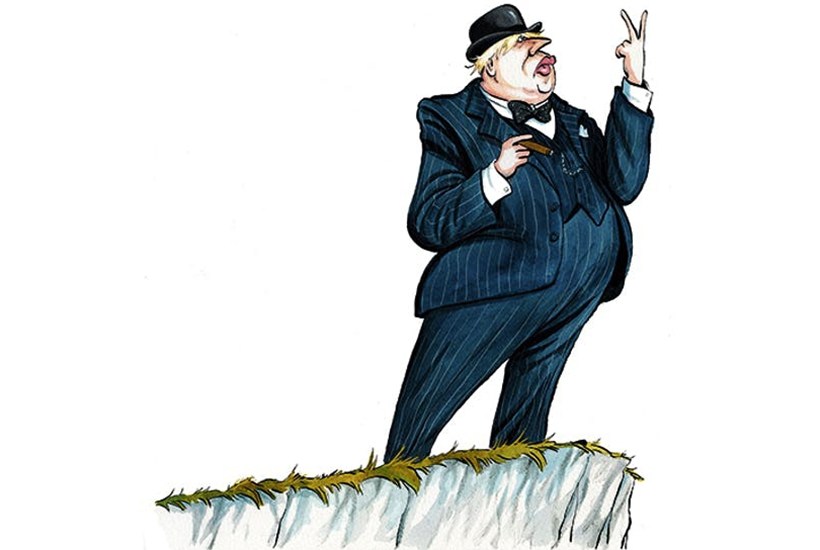
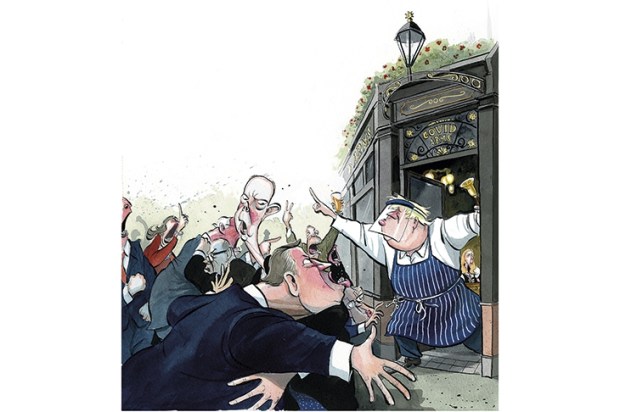
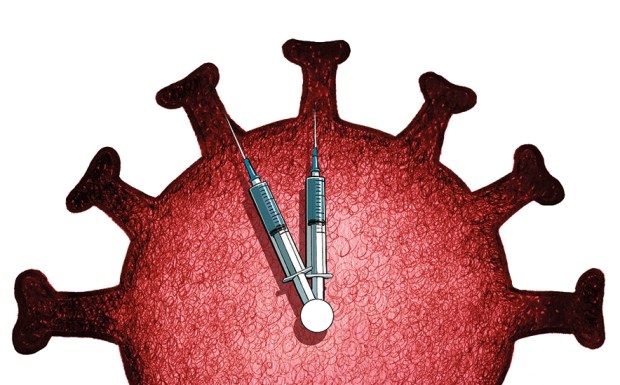
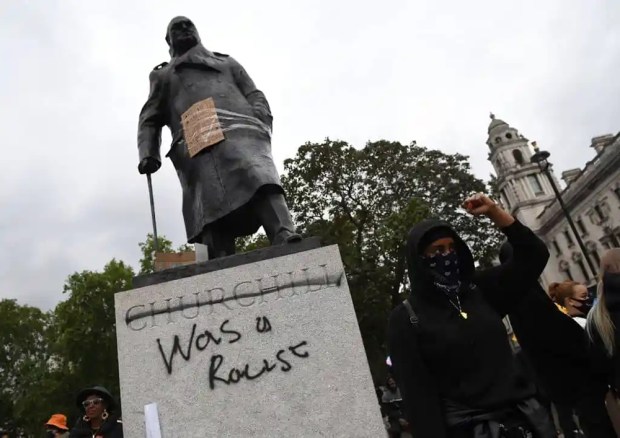


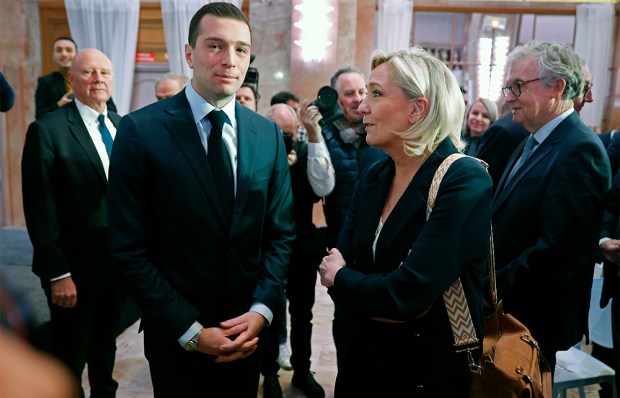






Comments
Don't miss out
Join the conversation with other Spectator Australia readers. Subscribe to leave a comment.
SUBSCRIBEAlready a subscriber? Log in